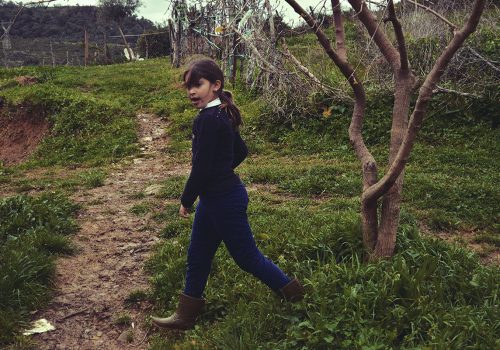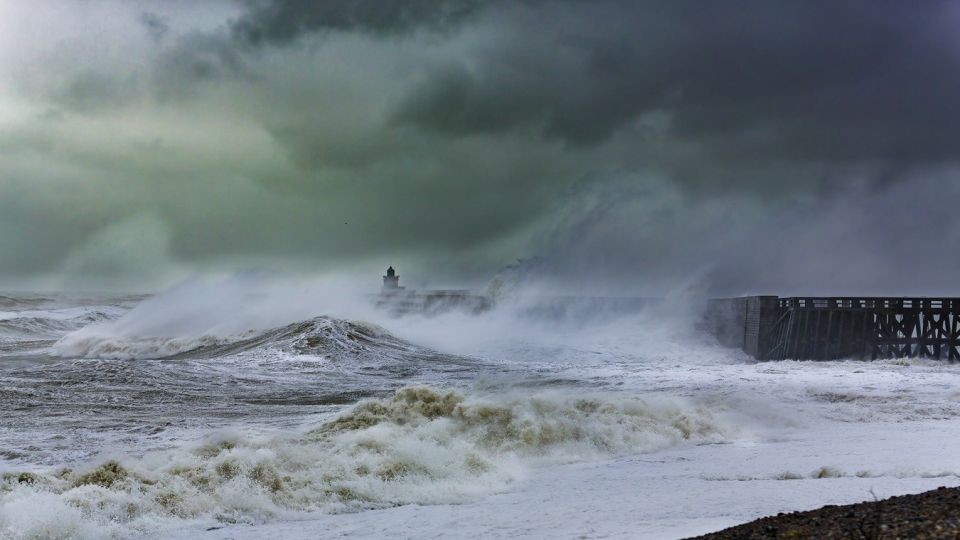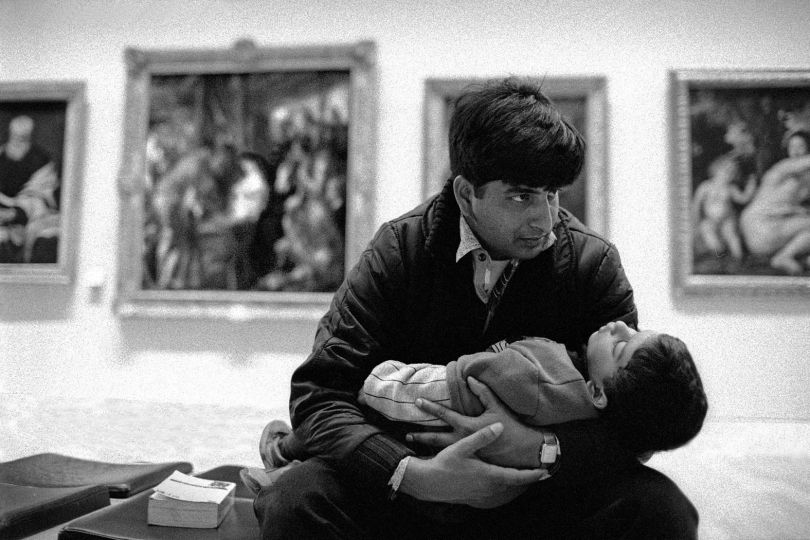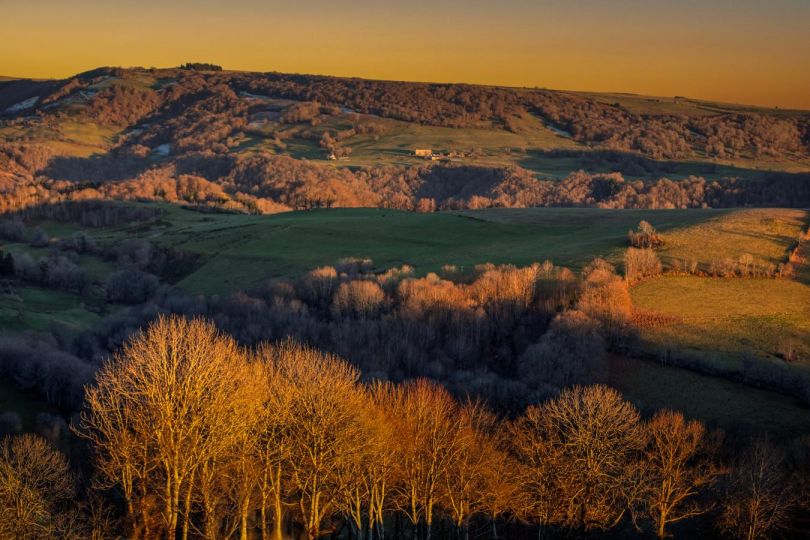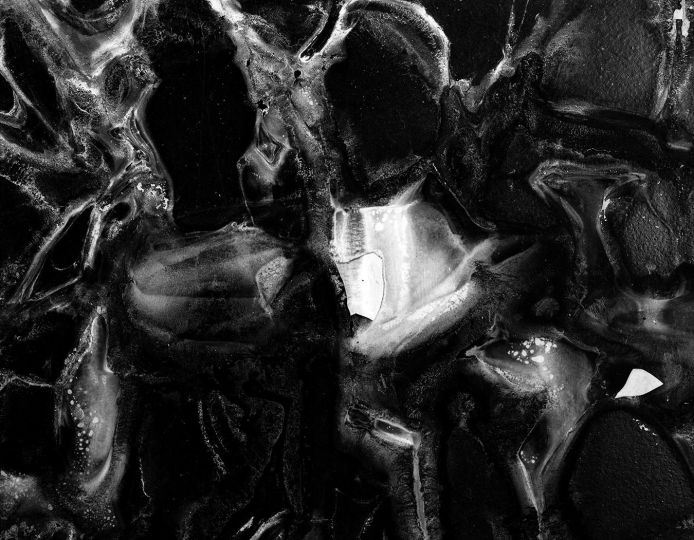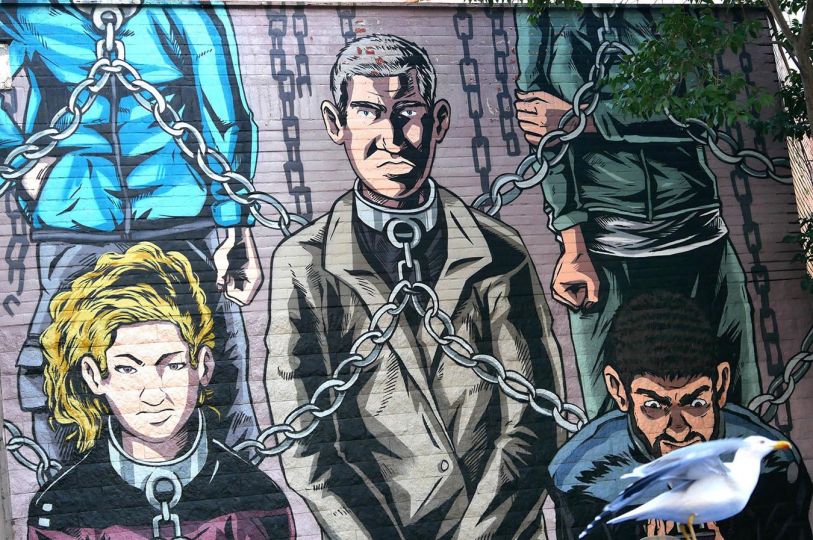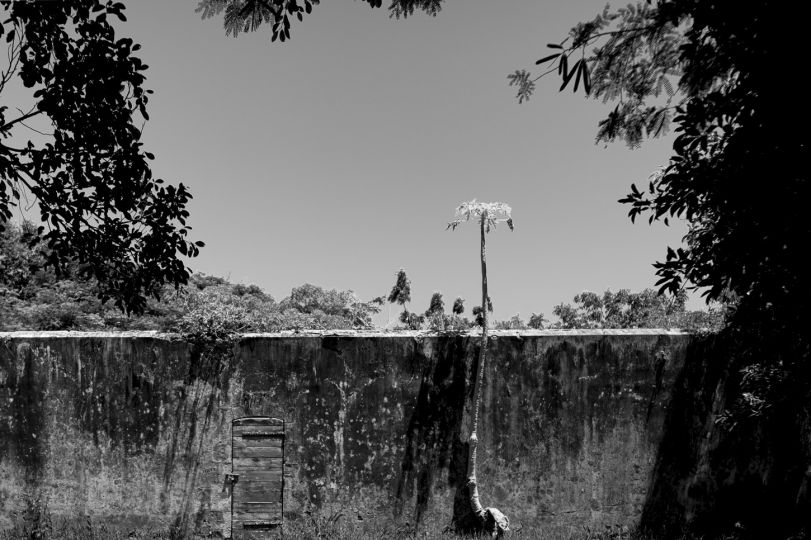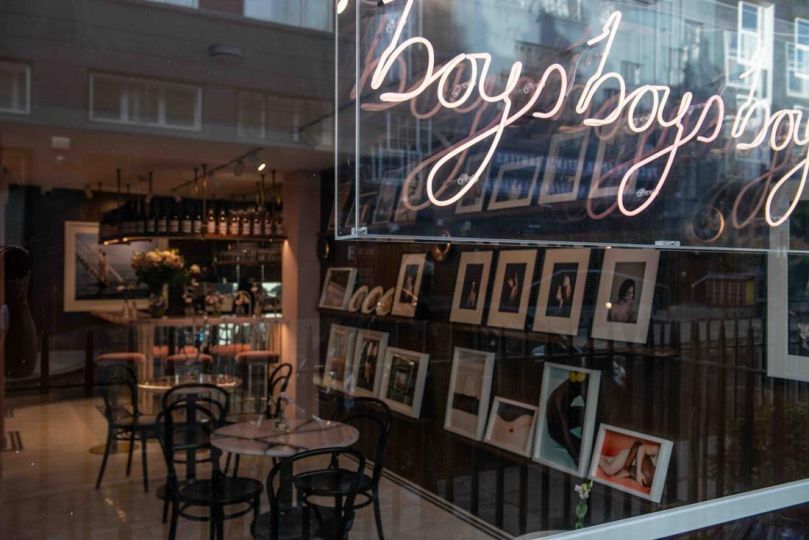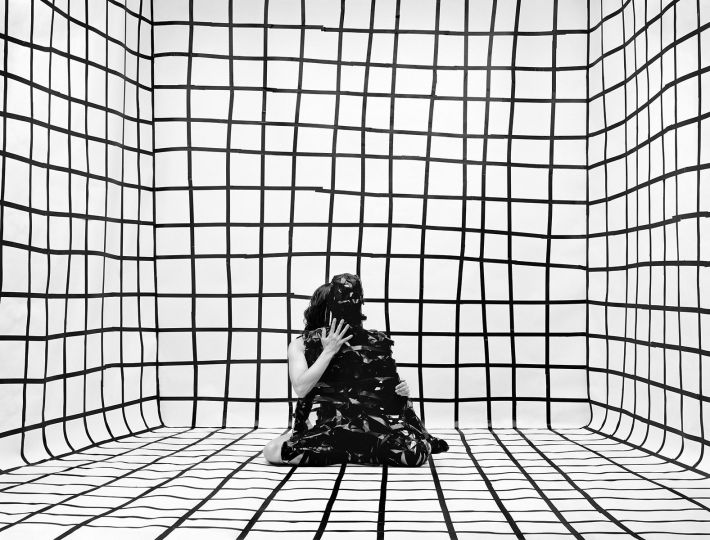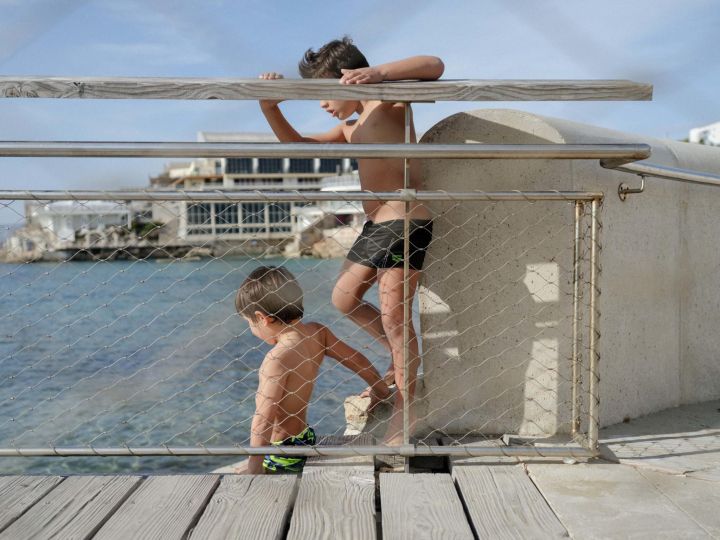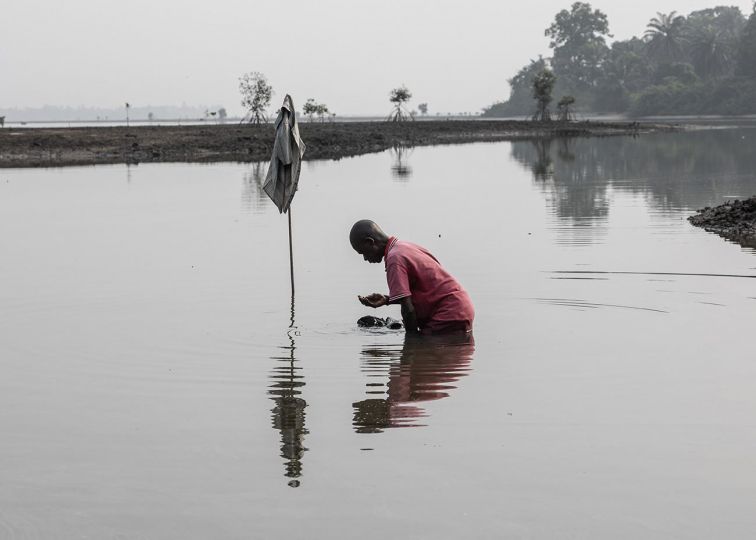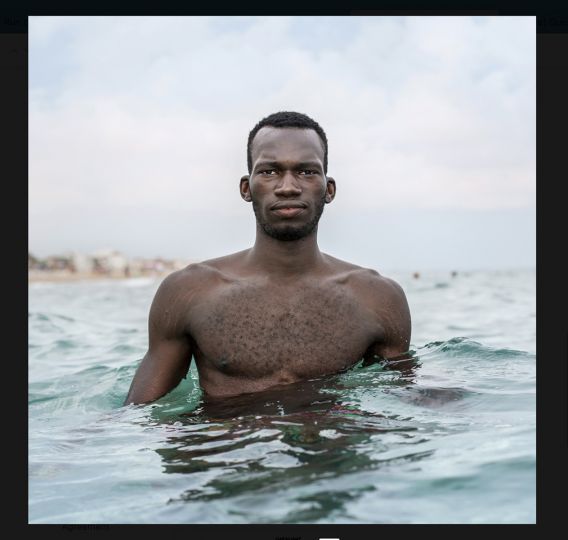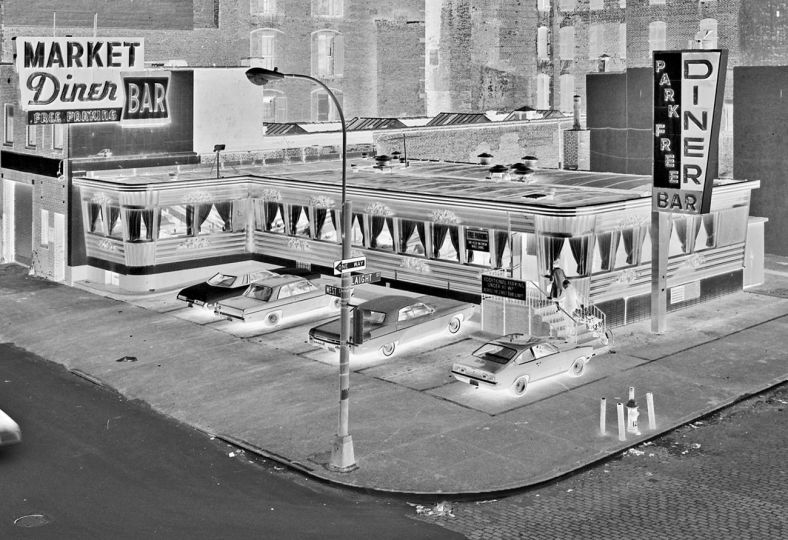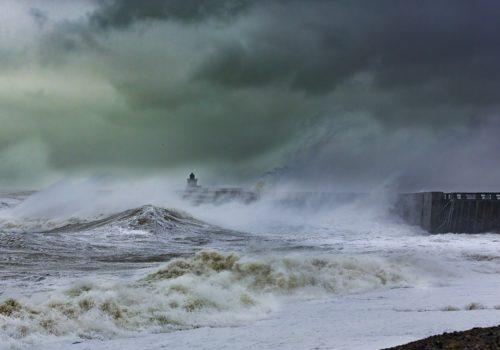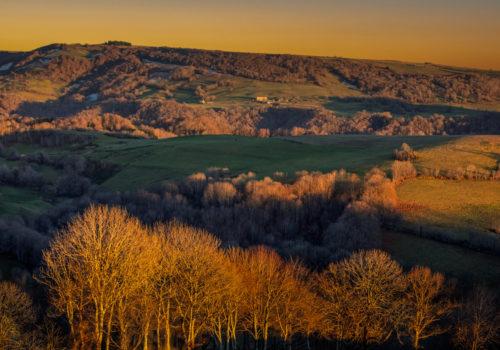“Lynn SK recounts, through her approach to photography, a personal experience linked to her dual culture: born in Algeria in 1986, refugee in France with her parents because of the terrorism that hit her country in the 1990s, she only recently returned to the cities and landscapes of her childhood, on a regular basis. Her photography is associated with a quest for identity and a form of autobiographicalfiction. From these trips back and forth between France and Algeria three series are gathered here: Belouizdad Street, Jenima and JE TU ELLES ( I YOU THEM).
This journey in the intimacy of the world of Lynn S.K. offers at the same time a look at Algeria today, the status of women, childhood, family; it is also the expression of the feeling of exile and the necessary return to origins. ”
Gabriel Bauret, general curator of the Biennale of Photographers of the Arab World.
Aller, retour
I was born in Algeria and lived there until I was seven years old; then, because of the civil war, we fled to France. Subsequently, we went back there until I was ten years old. And then my parents stopped taking me there. For a long time, flashes of memories came back. Of Boumerdès especially, the city of my childhood. And the area of Champ de Manœuvre in Algiers. But it took a certain thought process to consider a geographical progression, little by little, Algeria and my self quest became indissociable. And it is in the fall of 2014 that I crossed the threshold, after seventeen years of absence.
Rue Belouizdad, Alger
2014 – 2017
When I returned to Algiers in 2014, I live on Belouizdad Street in a popular neighborhood. I find my aunts, H. and N .. Since the recent death of their sister, they have moved to her apartment to never leave it. There is also B. who was the nurse of my deceased aunt and who has remained.
This series of photographs was made in this small apartment where four of us lived; four women.
N. who is retired, and H. on long-term sick leave. H. and N. spend a lot of their time looking out the window, smoking cigarettes, and then sleeping, as if to rest from a country that has mistreated them, whether because of hogra (in Algerian: the contempt, injustice, oppression), or its “black decade”, whose scars are barely closed again. And then there is B. who takes care of everything, and who, when she does not pray, never fails to prepare our favorite dishes.
And in the middle of all this, there is me who reconciles me with my memories in a world that is both familiar and foreign to me. I make images despite the time lost, that cross my mental images. After these seventeen years of absence, I fix with photography what must not be forgotten.
Jenima
2014 – 2015
In October 2014, I meet B. who was the nurse of my deceased aunt. Very quickly, she tells me about her mother and her family living in the Jijelian suburbs. I ask her if I can go there with her; she accepts. In Jenima, a small village in the wilaya (commune) of Jijel, I live in a farm, without gas or running water. B.’s parents are there, as well as the sons, the wife of one of them, and their daughters who have remained single. They adopt me, although they do not speak French and my Arabic is relatively mediocre.
I learn that they were close to being hit by terrorism during the 1990s. The so-called “terros” racketed their lands, their chickens, their cows, threatened to kill the men and rape the women. They were too far from the city to have any protection; they lived in fear, eating only once a day, sleeping only intermittently.
However, life returned quickly to Mohammed S.’s farm; while he looks after the fields , his sons are in town to sell the chickens, I stay with the women, the children.
They must earn about 10,000 dinars a month (the equivalent of 70 euros) and yet they adopted me. It is this daily life that I wanted to show with these photographs.
JE TU ELLES
2015 – 2018
Since my first return to Algeria in 2014, I asked myself the question of what it means to be a woman in contemporary Algeria, beyond exotic or post-colonial clichés. I explored the idea of femininity and sorority, between the region of Jijel, in the east of the country, and Tamnrasset, the gateway to the Sahara.
In the series JE TU ELLES, I continue this work with self-portraits.
In a country where the practice of photography is so complex, so hindered, where the relationship to images is so ambiguous, going through staging allows me more freedom to tell stories that I could hardly have photographed.
What appeals to me in particular are the often contradictory roles that Algerian women must play in the encounter between tradition and modernity. And this marks me all the more because through my “double culture”, I often have the feeling of playing a role, to exist only in a fragmented way.
In Algiers, Djanet, Jijel, in Kabylie … I am taking over the outfits of my aunts, grandmothers, and those of the women surrounding me. Sometimes with or without a veil, in Kabyle or Tuareg dress, I try to question both the representation of feminity, and my own identity fiction.
Mairie du 4ème

